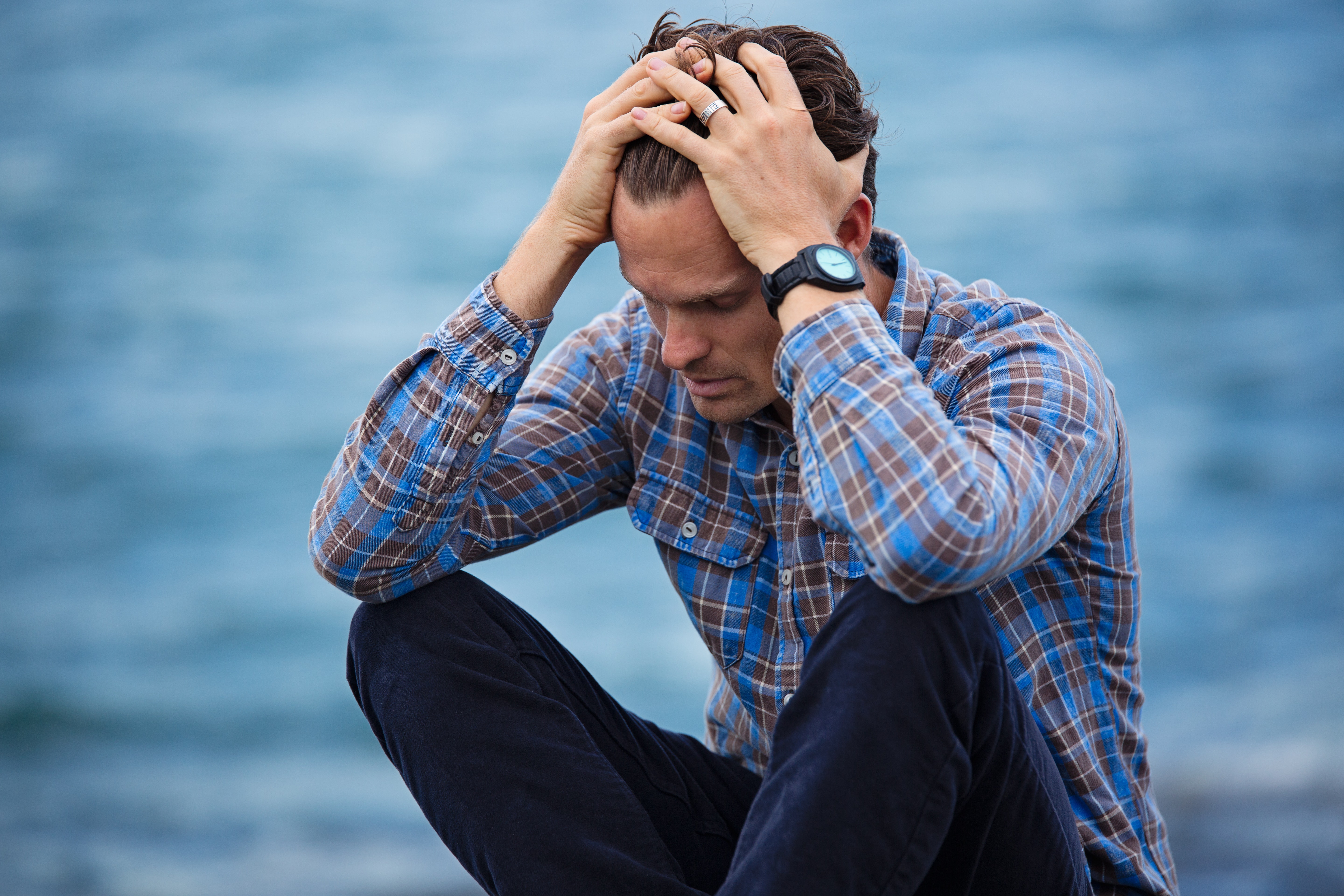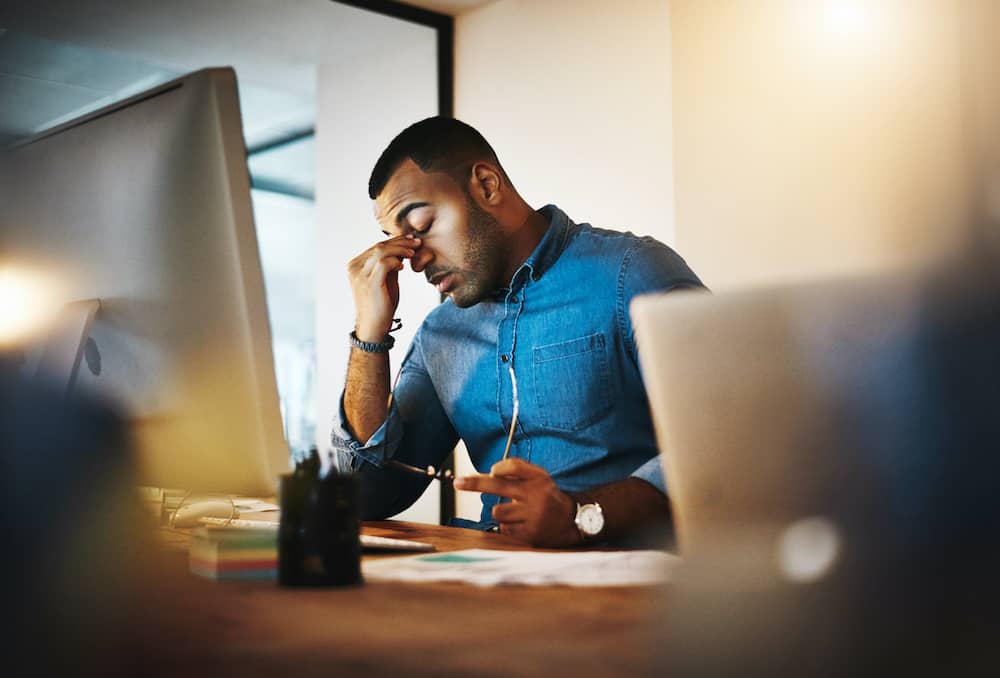Tiredness can be the result of a variety of reasons. Usually it is related to lifestyle factors such as sleep, diet, exercise, and stress but sometimes it is the result of a medical condition. The six most common medical reason for tiredness will be discussed later, but first we'll look at the different lifestyle factors, because more often than not changes to your lifestyle can help to improve your energy levels.
If you are constantly feeling tired, you should start by asking yourself the following questions:
- Are you getting enough good quality sleep?
- Are you eating a balanced diet?
- Are you getting some regular exercise?
- Are you dealing with anything particularly stressful at the moment?
These may seem obvious but often there is a simple solution to improving your energy levels. However, if you think your tiredness is not the result of lifestyle factors or it is accompanied by other symptoms you should see your doctor so that they can identify the cause of your tiredness.
Sleep
Are you getting enough sleep?
If you’re constantly feeling tired it’s possible that you are not getting enough sleep. Most people need around eight hours of sleep each night, however this varies from person to person so it’s important to find out how much sleep you need to feel your best.
Keep track of how many hours of sleep you are getting every night and if it is less than 7-8 hours this could be the reason for your constant fatigue. Try using Sleep Cycle Alarm Clock to track your sleep patterns.
How is the quality of your sleep?
If you think the amount of sleep you’re getting is sufficient, but still feel constantly tired, perhaps the quality of your sleep is poor. For instance, you might be waking up throughout the night which makes you feel tired during the day.
To improve your quality of sleep avoid having caffeine, cigarettes and alcohol too close to when you go to bed. Instead, try having a herbal tea that contains chamomile, lavender, or lemon balm (PDF) to help you fall asleep.

Drinking alcohol before bed makes some people feel more relaxed, helping them to fall asleep faster, but during the night sleep is affected. According to Drinkaware, alcohol causes your body to come out of the deep sleep state, which is the most restorative time for the body and mind, and back into REM (rapid-eye-movement) sleep. REM sleep is much easier to wake up from, which is why you often wake up after a few hours when you drink alcohol before bed.
Caffeine and cigarettes are both stimulants, which make it harder to fall asleep and stay asleep. According to the Sleep Health Foundation (PDF), if you are having trouble sleeping, you need to limit your caffeine to 200mg a day - which is about two mugs of instant coffee - and you should not have any caffeine within four hours of going to sleep. Cigarettes are extremely bad for your health so you should consider quitting. However, if you do smoke and have difficulty with sleep you should avoid smoking at least two hours before bed.
To improve the quality of your sleep, try creating a sleep routine. This involves going to bed at the same time every night and spending around 30 minutes winding down before you try and go to sleep.
Are you finding it hard to fall asleep?
If you are finding it difficult to fall asleep you need to identify why. Ensure your bedroom is a relaxing environment, wind-down before bed, and create a sleep routine.
Make sure your bedroom is dark and quiet when you are trying to fall asleep. When it is dark your body releases melatonin to relax the body and help you fall asleep. Try getting blackout curtains or use an eye mask to block out any light, and if you read in bed use a dimmer light.
Try to avoid using your smartphone and any other digital devices for at least thirty minutes before going to bed. Research has suggested (PDF) that the blue light emitted by this type of device can suppress your body's production of melatonin.
Loud or sudden noises disrupt sleep so make sure you go to sleep in a quiet environment. If that's not possible you can reduce external noise by using ear plugs. Unlike loud and sudden noises, soft and steady sounds can help you to relax so try listening to white noise or other relaxing sounds when you are trying to sleep.
Diet
Tiredness could be the result of a poor diet, caused by a lack of certain important nutrients.
According to the British Nutrition Foundation (BNF) it’s important to eat a balanced diet that incorporates the right quantity of a variety of healthy foods.
The BNF recommend basing your meals on starchy carbohydrates such as rice, potato, or pasta and having at least five portions of fruit and vegetables a day. It is also important to include a moderate amount of protein from sources such as beans, pulses, fish and meat and to include healthy sources of fat.
Limit your intake of food and drink that is high in saturated fats, salt and sugar, as well as your consumption of alcohol, as these foods can interrupt your sleep.

An example of a healthy day of eating (PDF) includes:
Breakfast
- No added sugar muesli, semi- skimmed milk, banana, and a small glass (150ml) of orange juice
Lunch
- Jacket potato with tuna and sweetcorn and a salad
Afternoon snack
- 2 oatcakes, cheese, and grapes
Dinner
- Chicken and spinach curry with brown rice
Evening snack
- Guacamole, 1⁄2 wholemeal pitta, and 4 squares of dark chocolate
Your diet might be lacking in iron, which can result in iron deficiency anaemia. Tiredness is a common symptom of this disease. More details about this condition as well as what to do about it will be discussed later in this article.
If you think that you already eat a healthy and balanced diet but you are concerned about a nutrient deficiency, you should see your doctor. They should be able to identify any nutritional deficiencies you may have with a blood test.
Read more
Learn more about how your diet can affect your energy levels in our Health A-Z
Exercise
Exercise may seem like the last thing you want to do when you are feeling tired, but studies have shown that regular exercise can actually help you feel more energised. Whilst it isn’t clear why exercising helps fatigue there is definitely a correlation between moderate exercise and feeling less tired.
The UK Department of Health (PDF) states that you should include moderate exercise in your daily routine and be active for at least 150 minutes a week.

Moderate exercise is characterised by an increase in your breathing and heart rate, and you will also feel warmer. It can easily be incorporated into your daily routine by:
- Going for a brisk walk
- Going on a bike ride at a steady pace (below 10 miles an hour)
- Dancing
- Gardening
- Cleaning
Stress
Stress can often be the cause of tiredness due to the extra strain that it puts on your body.
Some of the main triggers for chronic stress or anxiety are:
- New job
- Divorce/separation
- Financial issues
- Moving house
If you are experiencing any of these things or you feel more stressed than usual this could be causing you to feel more tired.
To relieve stress and anxiety talk to your friends and family about your experiences and also take some time to relax. Techniques to reduce stress include mindfulness, breathing exercises, diet, and exercise.
Mindfulness involves paying attention to the present moment and it can help you to be more aware of the thoughts and feelings you are experiencing. You can practice mindfulness in your daily life by picking a certain time each day to notice your surroundings and how you are feeling. You can also try mindfulness meditation, with apps like Headspace, or practice yoga to focus on your breathing and to pay more attention to your thoughts.
Calming breathing exercises can help reduce stress and anxiety and can be done anywhere. Get into a comfortable position and then breath in through your nose and out through your mouth gently and regularly, for three to five minutes.

A healthy and balanced diet, as mentioned above, can help reduce feelings of stress and tiredness.
Exercise can also help to relieve stress by improving your mood, sleep quality, and energy.
If you don’t think any of these lifestyle factors are the cause of your tiredness then you should see a doctor to rule out other conditions.
The most common conditions that can cause tiredness are listed below.
Medical Reasons
Anaemia
A diet that is lacking in iron can result in iron deficiency anaemia, though there are other causes. Other symptoms of iron deficiency anaemia include a pale complexion and hair loss. Dark leafy greens and iron-fortified cereals or bread are high in iron and so should be incorporated into your diet if you have low iron levels.
Underactive thyroid
An underactive thyroid (also known as hypothyroidism) can cause you to feel tired because not enough thyroid hormone - which metabolises food to create energy - is being released. Other symptoms of an underactive thyroid include weight gain and aching muscles.
Chronic fatigue syndrome
Chronic fatigue syndrome (CFS) (myalgic encephalomyelitis, or ME) is an extreme form of tiredness that can prevent you from carrying out everyday activities, and it usually lasts for at least six months. If you have CFS you will usually have other symptoms, such as a sore throat and muscle and joint pain.
For more information, support, and practical advice about living with CFS you can go to the ME Association’s website.
Depression
Depression can cause tiredness and it tends to be accompanied with other symptoms, such as feeling sad and hopeless. If you think you might have depression it is important that you see a doctor.

Anxiety
Generalised anxiety disorder (GAD) can cause you to feel tired due to constant and uncontrollable feelings of anxiety. As well as feeling tired people that suffer from GAD also feel worried and irritable.
Glandular fever
Glandular fever is a viral infection that causes fatigue, along with a fever, sore throat, and swollen glands.
Whilst most people don’t develop complications from glandular fever, they can occur in rare cases. If you have glandular fever and you experience sudden, intense abdominal pain you should see a doctor immediately.
Conclusion
There are many different reasons for feelings of tiredness, but usually extreme tiredness can be resolved with some simple changes to your lifestyle. Make sure you are getting enough, good quality sleep, that you are eating a healthy and balanced diet, you exercise regularly, and that you take time to relax. If your lifestyle is not the problem or you have other symptoms there could be a medical cause for your tiredness including: anaemia, hypothyroidism, CFS, depression, anxiety, and glandular fever. Usually your symptoms of tiredness will go away if you follow the information above but if you are concerned about your symptoms try our 'When to Worry' feature to get more information on tiredness.
Want more tips on how to sleep like a baby? Try out our 28-day in-app sleep better plan for all the latest hacks on how to drift off more quickly and have better quality slumber. Currently available on iOS only.




